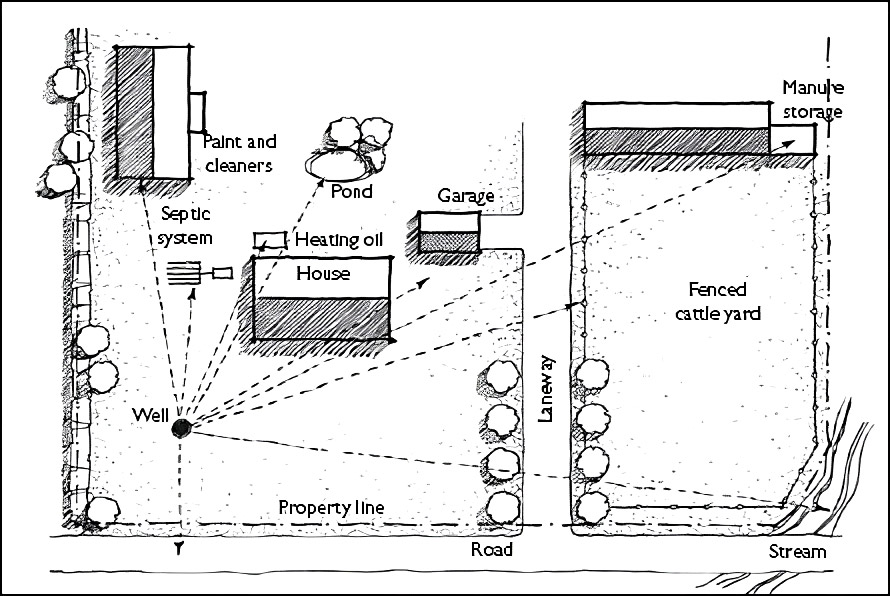Buyer’s Checklist
Possible Costs
- Lawyer fees for drawing up transfer documents
- Lawyer fees for writing the mortgage
- CMHC Insurance
- Appraisal fee
- Site survey or lot line survey
- Title Insurance
- Inspections: Home Inspection, Geotech, Water Tests, Septic Inspections, Environmental Scans and/or WETT.
- Foreign Buyers Tax
- Property Purchase Tax:
1% on the first $200,000 – 2% over $200,000, 3% over $2,000,000 and 5% over $3,000,000. *except first time homebuyers that qualify - GST
- Property Home Insurance & Premiums
- Septic site approval on undeveloped land
- Property Taxes
- Propane Tank or Security System Leases
Important Facts
- Stigmas. Sellers need only to disclose stigmas if specifically asked.
- If you are contemplating assigning the Contract or adding additional names to the Contract, a Notice of Assignments & provision within the contract must be included at time of writing an offer.
- Once you have an accepted offer you are in a legally binding contract & must make your best efforts to fulfill your conditions.
- Deposits can NOT be released until there is a mutual agreement in writing between the parties, the deposit has cleared, and the provisions of the Real Estate Services Act have been complied with.
- Property Purchase Tax is calculated at fair Market Value at time of closing.
- GST: Buyers must satisfy themselves concerning the application of GST to the transaction.
- Property Disclosure Statement can be incorporated into the contract.
- A site survey will ensure that there are no encroachments.
- Homes built previous to 1976 are pre-building code.
- Homes constructed prior to 1990 may contain building materials that contain asbestos. The Buyer is aware that a Hazardous Materials Survey may be required prior to any renovation or demolition.
- Homes built after July 1, 1999 are covered by the Homeowners Protection Act, which requires insurance or warranties from any builder, OR a declaration by an owner builder if sold within 10 years of receiving occupancy.
- A house inspection by a certified inspector insures you know what you are buying.
- A Geotechnical survey can be required by the building inspector at their discretion especially on steep slopes and at the edge of cliffs or where building site is suspect. These conditions may also include existing properties/homes.
- Development Permits may be required before building or modifying the landscape in any way, where the property might have an 80% slope on it as is clearly inside or extremely close to the DP-6/DP area hatched line. The Islands Trust planning staff can help to determine whether an application will be required.
- Wood Heaters need a recent WETT approval for insurance purposes.
- Wells & septic fields should be 100 feet apart. Septic systems must be 50 feet from any breakout point.
- Buyers are aware that the square footage of homes and the rooms, and property is approximate and should be verified if important.
- Buyers should satisfy themselves with the operational function and condition of the Waste water treatment system (septic) and ensure it complies with regulations.
- A permit to construct a septic system is mandatory to get a building permit and should be obtained before purchasing a lot. Permit application requires lot plan & detailed sketch of home & septic placement.
- Well logs show the quantity flow on the date which they are drilled, and may not be an accurate account of the current water supply.
- Water quality may vary from site to site and month to month.
- Surface water is subject to the BC Water Act and may have a license on it, which would not be registered against the title.
- Water Courses: Properties that are within 100 feet of fish bearing habitat, or are determined to be a water course, may fall under riparian or other municipal/regional regulations. This can impact future improvement on the property and may require an application for a development permit prior to commencing improvements
- A protective screen of natural vegetation must be retained within a 7.5 meter (24.6 feet) radius of the trunk of a tree bearing nests of herons, eagles, osprey, vultures, falcons, hawks and owls.
- Gabriola Island has recorded Heritage Sites, which may be affected by the Heritage Conservation Act.
- There are properties on the island that are likely to form part of Treaty Settlement lands.
- Buyers to satisfy themselves on all zoning/bylaws, existing & proposed, which may impact the use or further development of the property
- Buyers purchasing undeveloped land should satisfy themselves as to the cost of hydro connection.
- Including fuels such as propane & oil can simplify issues at the completion date.
- Non-Canadian residents will be subject to a holdback for Canadian tax on profit when they resell the property plus additional tax holdback if they collect rent on the property.
- With the exception of any provisions as outlined in the contract, the buyer is satisfied with the shape & size of the subject property, and the siting of all improvements on the property.
- Some properties may or may have previously contained an underground/ above ground Oil storage tank. Buyer(s) are responsible to satisfy themselves with potential liabilities.
Seller’s Checklist
Possible Costs
- Commission
- Mortgage Penalty
- Executing Documents
- Capital Gains Tax
- Taxes & Disbursements
- GST on Commission
- Discharging Encumbrances
- Non Resident’s Tax
- Moving Expenses
- GST
It is recommended that sellers obtain independent advice from an accountant, lawyer, or financial institution as to the implications of any of the listed concerns. When filling out PCDS, be aware propane tank & alarm systems are often leased.
First Time Home Buyer
The costs associated with purchasing a home, such as legal fees, disbursements and land transfer taxes, can be a particular burden for first-time homebuyers who must pay these costs, as well as save money for a down payment. To assist first-time homebuyers with the costs associated with the purchase of a home, the Government of Canada introduced a FTHB Tax Credit in 2009 a $5,000 non-refundable income tax credit amount on a qualifying home acquired after January 27, 2009. For an eligible individual, the credit will provide up to $750 in federal tax relief starting in 2009.
Well and Septic Systems
Buying a House With a Well and Septic System
In rural areas, many homes do not have connections to municipal water and sewer lines. Homeowners rely upon privately owned or communal (shared) wells as their drinking water source, and individual septic systems to treat and discharge their wastewater. Homeowners must ensure that their well water is safe to drink, and that their well and septic systems are properly maintained. A malfunctioning well or septic system can pose a health risk to your family and neighbours, and can be expensive to repair or replace. It is therefore important to conduct a detailed inspection of both the well and septic systems prior to purchasing a home.
As there is much information on this topic, we’ve created a full page of detailed information for you to review. It includes more information on all of the following topics:

- Wells and Well Systems
- Well Inspection Checklist
- Water Quantity and Checklist
- Local Knowledge
- Water Recovery Test
- Water Sampling
- Water Test Results, Health and Aesthetic Indicators
- Water Quality Checklist
- Drilling a New Well
- Septic Systems, Leaching Beds and Alternatives
- Inspecting Septic Systems
- Septic Replacement or Repair
- Questions To Ask the Home Owner
- Permit Review Checklist
- Tank Inspection Checklist
- Leaching Bed Inspection
- Indoor Inspection Checklist
Working with a Realtor
YOUR RELATIONSHIP WITH A REALTOR
Buying, selling or leasing real estate is probably the most important and potentially rewarding financial transaction you’ll make in your life. So it is a good idea to take a moment and consider the kind of relationship you might be entering into with a REALTOR®. The more you know, the more satisfied you will be with the results.
THE AGENCY RELATIONSHIP
REALTORS® work within a legal relationship called agency. The agency relationship exists between you, the principal, and your Brokerage, the company under which the individual who is representing you, is licensed. The essence of the agency relationship is that the Brokerage has the authority to represent the principal in dealings with others.
Brokerages and their Licensees are legally obligated to protect and promote the interests of their principals as they would their own. Specifically, the Brokerage has the following duties:
- Undivided loyalty. The Brokerage must protect the principal’s negotiating position at all times, and disclose all known facts which may affect or influence the principal’s decision.
- To obey all lawful instructions of the principal.
- An obligation to keep the confidences of the principal.
- To exercise reasonable care and skill in performing all assigned duties.
- To account for all money and property placed in an Brokerage’s hands while acting for the principal.
You can expect competent service from your Brokerage, knowing that the company is bound by ethics and the law to be honest and thorough in representing a property listed for sale or lease. Both buyer/tenant and seller/landlord can be represented by their own Brokerages in a single transaction.
DUAL AGENCY
Dual agency occurs when a Brokerage is representing both the buyer/tenant and the seller/landlord in the same transaction. Since the Brokerage has promised a duty of confidentiality, loyalty and full disclosure to both parties simultaneously, it is necessary to limit these duties in this situation, if both parties consent.
If you find yourself involved in a dual agency relationship, before making or receiving an offer, both you and the other party will be asked to consent, in writing, to this new limited agency relationship.
This relationship involves the following limitations:
- The Brokerage will deal with the buyer/tenant and the seller/landlord impartially;
- The Brokerage will have a duty of disclosure to both the buyer/tenant and the seller/landlord except that:
i) the Brokerage will not disclose that the buyer/tenant is willing to pay a price or agree to terms other than those contained in the offer, or that the seller/landlord is willing to accept a price or terms other than those contained in the listing;
ii) the Brokerage will not disclose the motivation of the buyer/ tenant to buy or lease or the seller/landlord to sell or lease unless authorized by the buyer/tenant or the seller/landlord;
iii) the Brokerage will not disclose personal information, not otherwise necessarily disclosed in the transaction documen- tation, about the buyer/tenant or seller/landlord to the other party unless authorized in writing.
- The Brokerage will disclose to the buyer/tenant defects about the physical condition of the property known to the Brokerage.
WHEN THERE IS NO AGENCY RELATIONSHIP
You may also choose to use the services of a REALTOR® without having any kind of agency relationship. This might occur, for example, when you are being shown a property by the seller/landlord’s agent.
The REALTOR® you choose to work with in this manner has a legal and ethical duty to provide you with accurate, honest answers to your questions and may provide all these services:
Explain real estate terms and practices
- Provide and explain forms used
- Assist you in screening and viewing properties
Inform you of lenders and their policies - Identify and estimate costs involved in a transaction
- Assist you in establishing your range of affordability
- Prepare offers or counter-offers at your direction
- Present all offers promptly
A REALTOR® who is not your agent cannot:
- Recommend or suggest a price
- Inform you of his/her principal’s top/bottom line
- Disclose any confidential information about his/her principal unless otherwise authorized
You should not provide a REALTOR® who is not your agent with any information that you would not provide directly to his or her principal.
YOUR RESPONSIBILITIES AS A BUYER/TENANT OR A SELLER/LANDLORD
As a buyer/tenant or a seller/landlord, you should:
- Carefully read all documents and understand what you are signing.
- If you need special or expert advice, seek other professionals such as lawyers, notaries, accountants, home inspectors, con- tractors, engineers and surveyors.
PRIVACY
REALTORS® , Brokerages and real estate boards need to collect,
use and disclose some personal information to help you sell, buy or lease real estate. We respect your privacy and want to ensure you understand how and why your information is collected, used and disclosed in a real estate transaction.
How is my personal information collected? Most personal information will be collected directly from you through the contracts and other documents you fill out (e.g., Multiple Listing Contract, Contract of Purchase and Sale, Offer to Lease, seller’s Property Disclosure Statement) and through discussions you have with your REALTOR®. Some information may be collected from other sources such as government departments and agencies (e.g., Land Title Offices, BC Assessment), financial institutions and mortgage brokers.
To whom may my personal information be disclosed? Your information may be disclosed to (or may be accessible by) the Boards and their staff and members, other real estate boards and their staff and members, other REALTORS® and their clients, government departments and agencies, financial institutions, legal advisors, service providers, the British Columbia Real Estate Association, the Real Estate Council of British Columbia, The Canadian Real Estate Association and members of the public, for the purposes described below.
Not all of your information will be accessible to each of the above- mentioned entities. For example, once the listing term has ended, the general public will not have access to your information unless it is otherwise available through public registries (e.g., BC Assessment, Land Title Offices).
PURPOSES FOR COLLECTING, USING AND DISCLOSING PERSONAL INFORMATION
Why is my personal information collected, used and disclosed? Your information may be collected, used and disclosed for some or all of the following purposes:
- To allow members of real estate boards (including REALTORS® and appraisers) to appraise your property.
- To list your property with the Multiple Listing Service® in order to market your property.
- To market your property for sale or lease through any other media (both print and electronic).
- To help you locate a suitable property to purchase or lease. -To facilitate the purchase and sale or lease transaction (by cooperating with financial institutions, legal advisors and government departments and agencies).
- To allow the Boards and other real estate boards and their members (including REALTORS® and appraisers) to compile current and historical statistics on sales and property prices and lease rates, and to conduct comparative market analysis. Information about your property will be retained in the Multiple Listing Service® for these purposes after your property has sold or leased or your listing has expired (if you are a seller/landlord) and after you have purchased or leased your property (if you are a buyer/tenant).
- To enforce codes of professional conduct and ethics for members of real estate boards (by cooperating with real estate boards, the British Columbia Real Estate Association, the Real Estate Council of British Columbia, The Canadian Real Estate Association and other regulatory bodies).
- To comply with legal requirements and to act pursuant to legal authorizations.
- The above-mentioned collections, uses and disclosures are a necessary part of your relationship with your REALTOR®.
Will any and my personal information be collected, used and disclosed for other purposes? Your information may also be collected, used disclosed for the following additional purposes:
- Your REALTOR® may communicate with you in future to deter- mine whether you require additional real estate services.
- Your REALTOR® may communicate with you to provide information about other products or services which may interest you.
- Other REALTORS® may communicate with you to determine whether you require additional real estate services.
- The Boards, other real estate boards and their members, and survey firms on their behalf, may communicate with you to determine if you wish to participate in customer satisfaction surveys and other surveys. These additional purposes are optional. If you do not want your personal information disclosed or used for these purposes, please contact the Board’s privacy officer. Contact information for all real estate boards within BC can be found at the British Columbia Real Estate Association (BCREA) website: www.bcrea.bc.ca or telephone 604.683.7702.
DEFINITIONS (Click to view)
The Brokerage is the real estate company under which the individual is licensed.
The Licensee is the managing broker, associate broker and/or representative of a Brokerage.
REALTOR® is often used interchangeably with licensee, real estate agent or representative and, in BC, is licensed under the Real Estate Services Act. A Licensee can use the term REALTOR® if he/ she belongs to a local real estate board or association that enforces a strict Code of Ethics.
The Boards are the real estate boards and associations in whose jurisdiction the property is located and/or of which the Brokerage or the REALTOR® is a member. They are boards and associations which assist REALTORS® to market, sell or lease real estate. The Boards also provide ongoing training for their members, enforce ethical standards and help resolve disputes between members and the public.
The Multiple Listing Service® is a computerized database of real estate listings and sales. It is operated by the Boards in conjunction with other real estate boards and The Canadian Real Estate Association.
Personal Information means any personal information about you, including your name, address, phone number, financial information and may include information about your property (such as listing and selling price, lease rate, listing term, etc.).
The buyer/tenant is often referred to as the purchaser.
The seller/landlord is often referred to as the vendor.
The principal is someone who has engaged a Brokerage to act for and on his or her behalf either to buy, sell or lease real estate. The landlord is often referred to as the lessor.
The tenant is often referred to as the lessee.
Multiple Offers
If more than one offer on a specific property is made before the Seller has accepted an offer, all written offers must be presented to the Seller. The only exception would be if the Listing licensee has specific written instructions from the Seller of the listing not to present particular types of offers. Unless otherwise instructed by the Seller, the Listing licensee should ensure that any other licensee involved knows there will be competitive offers. This is in the Seller’s best interest.
Multiple Offer Guidelines
To be reviewed with Buyers/Sellers
In addition to the stipulations in the RECBC LPM, the Vancouver Island Real Estate Board has adopted guidelines for the handling of multiple offers, and it would be useful for Buyers/Sellers involved in multiple offers to understand these guidelines.
All Written Offers Must Be Presented
Until such time as an offer has been accepted, all written offers must be presented. This means that if a Buyer submitted an offer on a property and another written offer came in before it was accepted by the Seller, the other offer must be presented as well. The Seller is encouraged to allow enough time before the offers are presented that the first Buyer can be informed that they are now competing in a multiple-offer situation. This puts everyone on a level playing field.
Make Your Very Best Offer
All Buyers are encouraged to make their very best offer because it may not be accepted or countered. The Seller will deal with one offer and assess the following:
- Merits of the offer as to price, terms, inclusions and dates;
- Capability of the Buyer;
- Preference of the Seller; and
- Advice from the Listing licensee as to which offer, if any, should be accepted or rejected, in the owner’s best interest.
BLANK
Let Everyone Know What’s Going On
To ensure fairness to everyone concerned, the following guidelines should be followed:
(a) The Seller – Inform the Seller that you have received (or expect you may receive) more than one offer. If you have set up an appointment with a Buyer’s licensee and your Seller for presentation of an offer and, on your way to the appointment, you are notified that another written offer will be coming in, it would be prudent for you to suggest to the Seller that the appointment be postponed until the other written offer comes in, so that you can have both offers presented. It is always best to have this type of direction from the Seller in writing. It is critical that all Buyers be informed of the multiple offer situation so that everyone is on a level playing field. Obviously, this puts the Seller in a very strong negotiating position and allows all prospective Buyers the opportunity to make their best offer. Discuss with your principal Seller whether every Buyer’s licensee will be invited to present their offer. Offers should be presented in the order in which you received them. Also, let your Seller know that they will have an opportunity at this time to ask the Buyer’s licensee questions about their prospective Buyer and that, after all offers have been presented, they (your Seller) will have an opportunity to consider all of the offers with you and decide which one is best.
In instances where the Listing licensee is also presenting an offer, it is strongly suggested to have their Managing Broker, or another representative, present to counsel the Seller in this process to remove any perception of conflict of interest.
(b) The Buyer’s Licensee – Let the Buyer’s licensee know that there are multiple offers. They should then advise their prospective Buyer of the other offer(s) and suggest that they make their very best offer now because there may not be an acceptance or counter-offer. As licensees for Buyers, most REALTORS® may wish to present their client’s offer personally. Let the Buyer’s licensee know that they will be asked to leave after they have presented their offer so that the Seller may consider all of the offers presented, and they will be notified once the Seller has made a decision.
The listing licensee shall disclose the name of the licensee and brokerage of all competing offers to be presented to the REALTORS® involved.
Presentation of Offers
Review the ground rules with the Seller
(a) Stress that all offers will be presented, and the Seller should not deal with any particular offer until they have had the opportunity to review all of them with the Listing licensee.
(b) The Seller should be cautioned that although the Buyer’s licensee will be present to answer questions about their Buyer, they are not to be present during the discussions of the acceptance or counter-offer of their or any other offer. Of course this may negate itself if the Listing licensee is also a Buyer’s licensee.
Deal with One Offer at a Time
If there is to be a counter-offer, make sure only one offer is countered at a time, otherwise your Seller may end up having “sold” the property to more than one Buyer. Stipulate a time period within which the counter-offer is open for acceptance, and keep it to a minimum. (Back up offers ‘ refer to page 79 in the LPM).
Communication- Keep Everyone Informed
In dealing with multiple offers, the following maxim becomes extremely appropriate: “Not only must justice be done, it must be seen to be done”! To minimize misunderstanding about the “fairness” of how the offers were dealt with, it is important that information be transmitted as accurately, fully and quickly as possible. Let the other licensees know that the Seller considered all offers and chose to deal with one of them (or rejected all). Unless the Seller has any objection, you can disclose general information about an accepted offer, BUT if the Seller has countered, do NOT disclose the price or terms of either the original offer or the counter-offer. Advise the other licensee that you will notify them when the counter-offer has been either accepted or rejected.
Keep Calm
As Listing licensee, you are in charge of the process. Review the proper procedures to follow in advance of presenting any offers and then let both the Seller and other licensees know how proceedings are to be conducted. Be fair and open with everyone, keeping in mind that your first duty is to act in the best interest of the Seller. Don’t play games. Keep a copy of these guidelines available in order to assist both yourself and the other licensees involved in the transaction.
Document Your Actions
Once potential or real multiple offer scenarios arise, the licensees, both listing and selling, should diarize their actions and note times, dates and the nature of their conversations. This diarizing should extend to include conversations with both the Seller and/or Buyer. Accountability to all parties is essential, and often, clarification is needed after the fact. NOTE: All decisions made during the process should be in writing.
Procedure for Presenting Offers
(a) Offers will be presented in the order they are received.
(b) All offers should be presented before any one offer is dealt with.
(c) Unless otherwise instructed in writing by the Seller, the Buyer’s licensee may be invited to present their offer to the Seller and answer questions about their Buyer. They will not be present during discussions of the acceptance or counter-offer(s) of the offers.
(d) After all offers have been presented, the Seller and the Listing licensee should review all of the offers and the Seller will be asked to choose which offer they want to deal with.
Contact Trevor
YOURGABRIOLA.COM
Toll-Free 1-877-422-8455
Phone 250-247-2088
trevor@yourgabriola.com
Send an instant message via email using the contact form



















